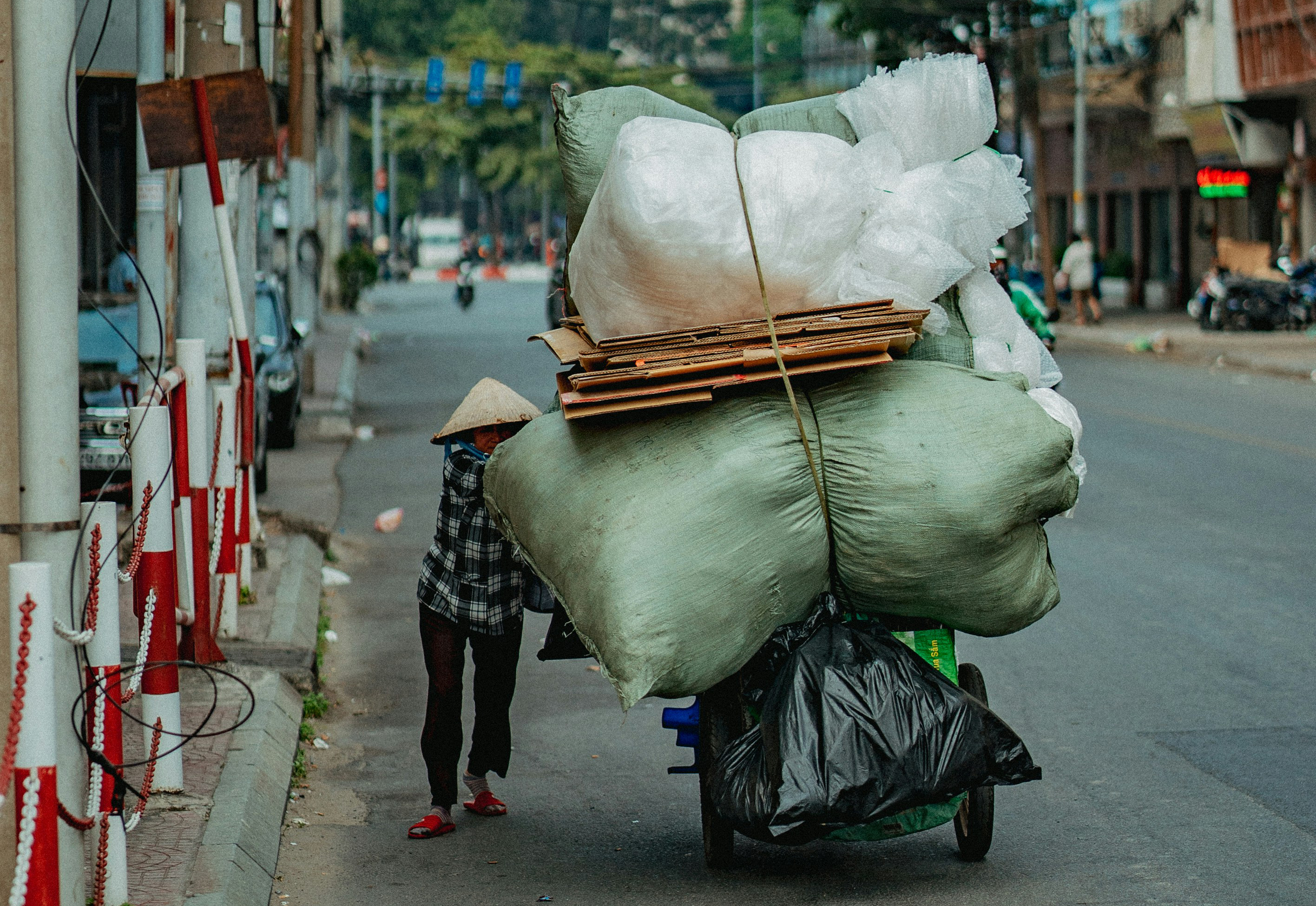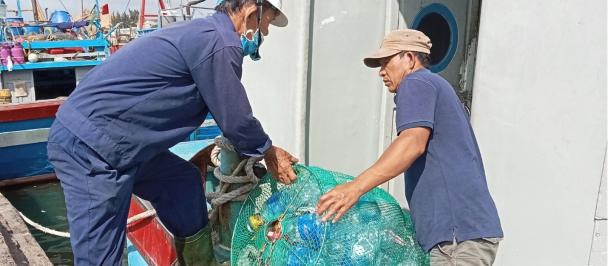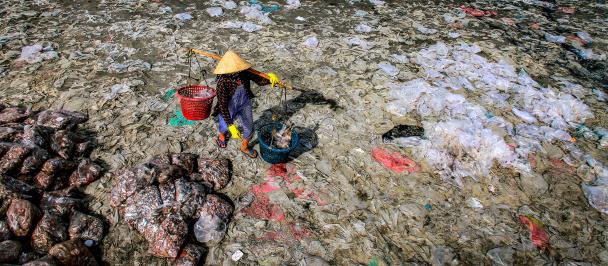Consultation Meeting "The role of Informal Waste Workers in Solid Waste Management and Implementation of EPR”
March 8, 2024

Mr. Jake Brunner, Country Representative of IUCN Viet Nam
Ms. Khadija Jarik, First Secretary of the Embassy of Canada – Chair of Gender Equality and Social Inclusion Task Force of Viet Nam NPAP
Mr. Nguyen Sy Linh, Institute and Strategy and Policy for Natural Resources and Environment (ISPONRE) - Co Chair of Gender Equality and Social Inclusion Task Force of Viet Nam NPAP
Representatives of Department of Legal Affairs, EPR Office, Provincial Government Departments and City Authorities from Da Nang, Hoi An, Soc Trang, Da Lat, Development Partners, Enterprises and Organizations;
Distinguished guests, ladies and gentlemen,
First of all, apologies that I am not able to join you in person at this consultation meeting on the role of informal waste workers in solid waste management and the implementation of the Extended Producer Responsibility (EPR) scheme in Viet Nam.
Its great to see this diverse group of stakeholders, including government officials, waste management experts, representatives of NGOs, the private sector, social enterprises working with informal sectors, and most importantly, the informal waste workers themselves join today’s discussion. That is the essence of NPAP.
As you know, Vietnam’s EPR regulations entered into force a little over two years ago for some product categories such as packaging, compelling certain producers and importers to calculate and pay for their products’ environmental impact. The aim is to approach waste management in a systemic way in an effort to reduce waste generation, increase recycling, and promote sustainable consumption and production.
Today you will hear initial observations on intended and unintended impacts of implementing the EPR scheme in Viet Nam, with a particular focus on hearing from informal waste workers and other stakeholders about their experiences so far.
A few data points to keep in mind:
20 million informal waste workers globally are responsible for 60% of collected and recycled plastic waste. But they are among the most vulnerable and marginalized group in the society.
Our focus is on understanding what EPR means for hundreds of thousands of Vietnamese informal waste workers, up to 90% of them women, who collect over 30% of recyclable plastic in the country. Will it make their lives more difficult, or will it bring them opportunities to improve their livelihoods?
In June 2022, UNDP and other partners published an issue brief on Inclusion of Informal Waste Workers (IWWs) in the transition to sustainable waste management, because we understand that EPR will fundamentally affect the waste collection, sorting and recycling system in Viet Nam, a system that relies in large part on the informal sector.
These workers, play a crucial role in waste management, especially collection and recycling.
I would like to highlight three findings gleaned from our issue brief:
First, the informal sector must be part of any solution and can help producers achieve recycling targets under the EPR system. Beyond Informal Waste Workers, the sector also includes others in the value chain such as scrap dealers, junk shops, aggregators, even semi-informal cooperatives in some provinces. Therefore, their voices should be heard and recognized.
Second, IWWs need access to professional equipment supplies, access to social benefits including health care, a supporting ecosystem will help in improving the working conditions of the collectors to accelerate efficiency and ensure that their benefits can be secured.
Third, the integration of IWWs in the waste management system is a complex and multi-faceted process requiring a coordinated approach. Therefore, multi-stakeholder approach to secure the involvement of the public both national and local levels and the private, NGOs, academia in the process is of great importance.
Moreover, I want to emphasize that when we talk about an inclusive EPR, we are talking about a just transition. This means that the shift toward more sustainable waste management practices must extend beyond policy discussions, and translate into actions. How can we create pathways for informal waste workers to improve their livelihoods in a more sustainable way? This question lies at the heart of the discussions today.
UNDP understands EPR as not only about producers’ responsibility towards recycling rates, but also about responsibility for people throughout the waste value chain, and especially informal waste workers, whose livelihoods depend on waste collection. I hope you will keep people at the forefront of your discussions.
In conclusion, I wish you all a productive day of dialogue, collaboration and exchange of new and innovative ideas. I will be eager to hear the outcomes of your deliberations.
Wishing you all a Happy International Women’s Day!

 Locations
Locations



